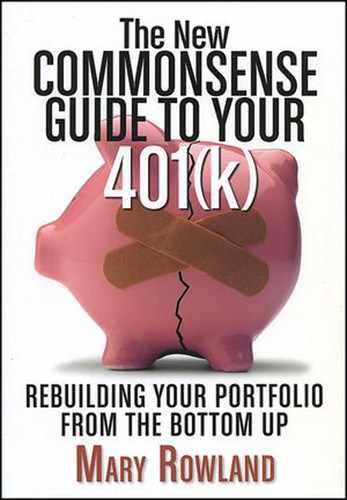OVER THE PAST SEVERAL YEARS, employers have been scrambling to set up supplemental pension plans for employees because of the growing limits on regular pension plans that we have been discussing. Even those employees happy to be covered in the new plans, though, might get unpleasant surprises at retirement. The supplemental plans do not offer the same security or tax advantages as traditional plans.
Regular pension plans, including both defined benefit plans and 401(k) plans, are called "qualified plans" because they meet certain rules and receive special tax treatment. The company, or plan sponsor, gets a deduction for any contribution it makes and employees do not pay any tax until they receive the benefit. Even when they retire, employees can roll the money over into an Individual Retirement Account (IRA) and continue to defer taxes. As discussed earlier, the government tries to maintain a delicate balance between encouraging Americans to save for their own retirement and preserving tax revenue.
Over the years, qualified plans have been cut back for upper-income employees to help bolster tax revenue. Recruiting top people for corporate and Wall Street jobs has been a tough business. Many companies try to make up for lost benefits by setting up supplemental executive retirement plans, called SERPs, which are non-qualified plans. SERPS represent a portion of the promised retirement benefit for many employees, but that is not portion guaranteed.
Most employees think of retirement benefits as one piece. They do not understand part of the benefits may come from a secured, qualified plan and another portion from an unfunded, non-qualified plan. "Many people would be shocked to see that the overwhelming portion of their pension is coming from a SERP and only a small amount from the qualified plan," one consultant told me.
There are two serious drawbacks to the SERPs. Supplemental plans are merely a promise to pay a benefit; the money for these benefits is not set aside with your name on it or secured in any way. So the employee faces the risk that the employer cannot pay or that it reneges on the contract. These plans also lack tax advantages. When a retiree gets this money, a chunk off the top goes for taxes. The remainder cannot be shielded in a tax-deferred retirement account, meaning future earnings are taxed as well.
I haven't seen any news yet on how SERPs might be affected by the new "frugality" on Wall Street. I put it in quotes because I'm not sure that Wall Street can ever be frugal.
But the spotlight is focused on big finance in the fall of 2009, particularly on the banks. I see that because, beginning in the spring of 2009, I have been functioning as news editor of a new web site for financial advisors, advisorsforadvisors.com. Every morning, beginning at 4:30 a.m., I go online to read the Financial Times, the New York Times, the Wall Street Journal, Reuters, Bloomberg, USA Today, Real Clear Markets, and so forth, and post what I consider to be the most important stories to that site.
So it was that I watched the "green shoots" of spring sprouting in the global economy, followed by the pickup in world markets. But by the end of September, plenty of questions were being raised about the strength of the recovery, in particular regarding the role of banks.
On September 25, Reuters reported that "the level of losses from syndicated loans facing banks and other financial institutions tripled to $53 billion in 2009, due to poor underwriting standards and the continuing weakness in economic conditions."[6]
And a story in the New York Times on September 23 reported that Britain's chief financial regulator, Adair Turner, refused to let the banks off the hook for their role in the crisis even though his critics called him "crackers," and "stupid."[7]
The Times reported that "Mr. Turner is daring to ask the very question that many Britons, and indeed, many Americans, are asking themselves: What good are banks if all they do is push money around and enrich themselves?"
I think Mr. Turner is on to something and I expect we'll see more pressure on the financial institutions to prove their worth. Won't some of that focus on the inequality in retirement benefits, such as SERPS, being provided to the "higher paids," vs. the "lower paids," many of whom are out of work?
